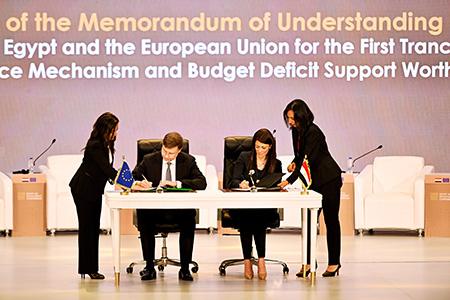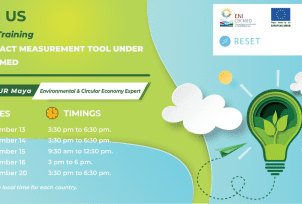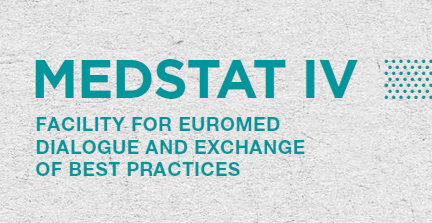The EU and Egypt team up to mobilise private sector investments at Investment Conference and sign a MoU of €1 billion in macro-financial

At the EU-Egypt Investment Conference, co-organised by the EU and the Government of Egypt on 29-30 June, the EU and Egypt are teaming up to intensify private sector investments in Egypt. They are also signing a Memorandum of Understanding (MoU) for the disbursement to Egypt of up to €1 billion in Macro-Financial Assistance. The Investment Conference and the signature of the MoU are the first concrete deliverables of the Strategic and Comprehensive Partnership (the Partnership), signed by the EU and Egypt in March 2024, in recognition of the important geostrategic role Egypt plays as a pillar of stability in the region.
Opening the Investment Conference, European Commission President Ursula von der Leyen said: “One hundred days ago we opened a new era in the relations between Egypt and the European Union, with our strategic and comprehensive partnership. Today, we deliver. We deliver for Egyptian businesses and entrepreneurs with €1 billion in macro-financial assistance, which will incentivise the reforms that businesses and entrepreneurs in the private sector need. We deliver strategic investments that will help make Egypt a clean energy hub at the centre of the Mediterranean, crossroads. And we deliver for Egypt’s youth, with a new skills programme so they succeed in the economy of the future. And this is just the beginning.”
Investment Conference
The Investment Conference is a key platform for discussion on economic reforms pursued by Egypt to improve the business environment and to attract further EU investment in key sectors. These reforms and investments are expected to drive forward the energy transition, in areas including the production of renewable hydrogen, to promote the circular economy, and to boost the pharmaceutical, medical and automotive sectors. Investments are also directed towards sustainable agriculture and food systems, water security, as well as innovation and digitalisation. An important number of private investment agreements worth €40 billion are expected to be announced and signed by European and Egyptian companies at the Investment Conference, including in sectors such as renewable energy and hydrogen.
At the Conference, the EU and the Government of Egypt are signing the Green Sustainable Industry programme. The programme, supported by a €30 million EU grant that unlocks a €271 million loan by the European Investment Bank (EIB) and partner banks, will assist industry in Egypt to invest in pollution abatement, decarbonisation, energy and resource efficiency.
To boost youth employability and skills, support Egypt to address the gaps in the child protection system and to enhance manufacturing capacities and access to vaccines, medicines and health technologies, the EU and the government of Egypt are signing three Financing Agreements, worth €36 million in total, as part of bilateral cooperation programmes. A €60 million EU support package to improve grain storage in Egypt under the Food and Resilience Facility is also being signed at the Conference.
The EU and Egypt are also signing the Financing Agreement for the Interreg cooperation programme NEXT MED, which aims to foster fair, equitable and sustainable development across the Mediterranean Sea Basin and as such contributes to the EU’s Agenda for the Mediterranean. With an EU contribution of €263 million, the NEXT MED is the largest EU-funded external cooperation programme in the Mediterranean Sea Basin. It brings together the coastal territories of 15 countries (7 EU and 8 partner countries), including Egypt.
Signature of Memorandum of Understanding for up to €1 billion in Macro-Financial Assistance
The up to €1 billion in Macro-Financial Assistance (MFA) is the first of two MFA operations for Egypt that is to provide a total of up to €5 billion in favourable loans to Egypt. This MFA support constitutes the large majority of the €7.4 billion in EU financial support under the Partnership.
At the Conference, the Memorandum of Understanding (MoU) for the first MFA operation is being signed. The MoU lays out a set of relevant, macro-critical homegrown reforms that are deemed feasible to deliver within the short assistance horizon of this operation, where disbursement is expected before the end of 2024. Agreed policy action covers three pillars: it is expected to promote macroeconomic stability, improve the business environment and enhance Egypt’s competitiveness, and support Egypt’s green transition.




























 Syria
Syria 





